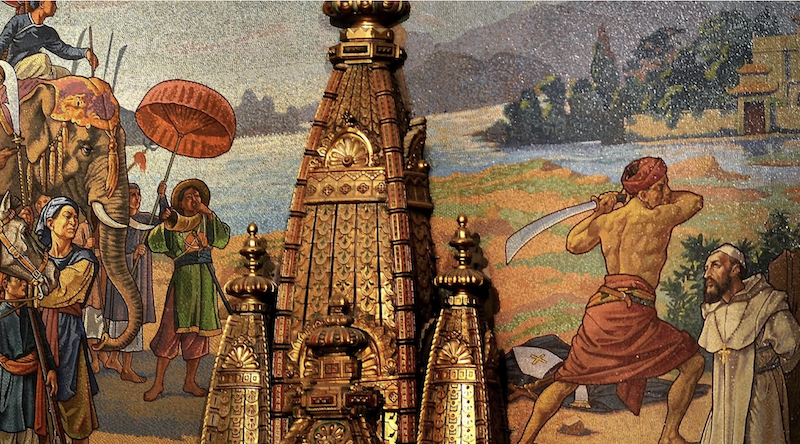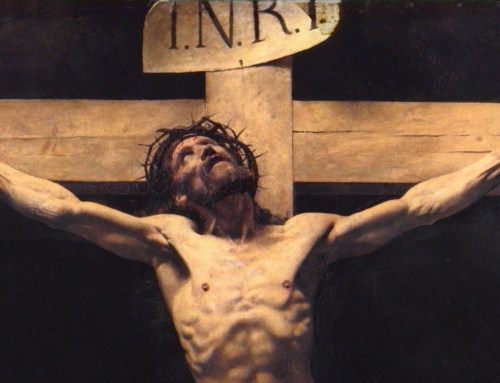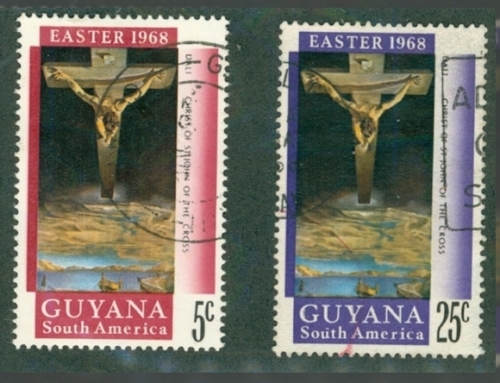The shores of the Gulf of Tonkin in northern Vietnam contain the sites of martyrdom of 22 canonized Dominican friars who laid down their lives between 1745 and 1861. These men—11 from Spain and 11 from Vietnam—are among the most recent of the Order’s canonized saints to have lived and died. One of the youngest of these martyrs, Saint Valentine Berrio-Ochoa, offers to people today an attractive example of accepting responsibility and hardship with prayerful trust and panache.
Born on Valentine’s Day 1827 in Spain’s Basque Country, St. Valentine Berrio-Ochoa was ordained a priest in 1851, clothed in the Dominican habit in 1853, and sent to Vietnam in 1858 amid the brutal anti-Catholic persecution of Emperor Tự Đức. With the Catholic mission in a precarious state, St. Valentine was consecrated a bishop almost immediately upon his arrival. A month later, his predecessor as vicar apostolic was captured and executed by dismemberment, only a year after his predecessor was beheaded. Saint Valentine spent the next three years as bishop living in muddy caves and the cellars of Catholic homes; from these hideouts, he secretly trained seminarians, governed his vicariate through letters, and administered the sacraments to the faithful.
Amid the dangers and sorrows of persecution, St. Valentine retained a cheerful flair that shines through in the letters that he wrote to his dear mother. With playful, almost boyish charm, he wrote to her in one of his letters that it delighted him to hear “that you are now a spirited elderly lady, and that you now go about with grace and style.” While describing his long nighttime treks between hideouts, which left him soaked by rain and filthy with mud, he notes that he made these trips with agility, as if he were a dancer or athlete: “I move about with ease in these mud pits.” Both nimble-footed and lighthearted, he likely made his mother laugh out loud when he announced with bravado that “Valentine is now a man of the mountains, and the beard on his face would make the devils in hell tremble.”
After reassuring his mother that he was happy and that “God consoles us in our work,” St. Valentine implored her to pray for him to Jesus. He exhorted her to have courage, to “carry the trials of the world with patience,” and to ask Jesus for the grace of perseverance, since “the grace of Jesus has more powers than the flesh and hell.” Not long afterwards, St. Valentine was abducted, caged, and tortured by imperial officials, before being beheaded on All Saints Day 1861 along with two other Dominican friars. He was 34 years old.
With his buoyant charm and his earnest reliance on the grace of Jesus, St. Valentine Berrio-Ochoa offers people today an attractive and approachable example of courage amid life’s hardships. His cheerful self-sacrifice can be a model especially for young people taking on new responsibility for souls—as new priests, new pastors of parishes, new spouses and parents—inviting them to lay down their lives with hope and style and to persevere in the great tasks before them.
✠
Photo by Council of Elorrio (used with permission)







